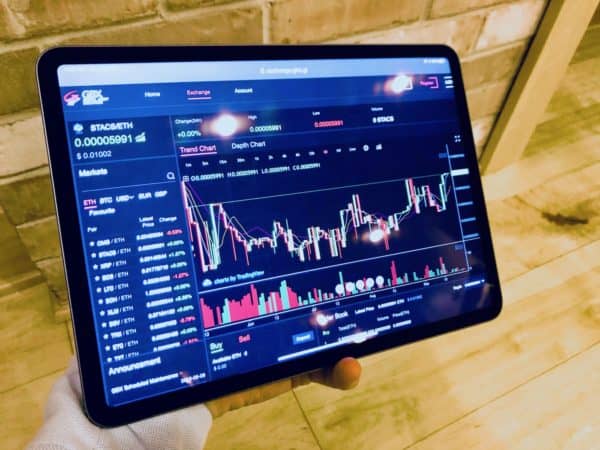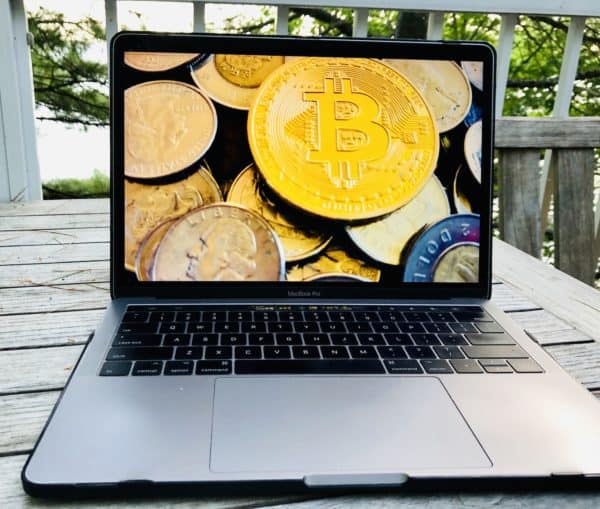Digital Assets are the Future of Securities
It is a truism that digital assets are the future of public securities. The ink on paper certificates have had a good run but the digitization of finance is upon us and securities must be digitized. The advent of blockchain technology highlighted how “smart contracts” or code could be embedded into these digital assets to facilitate certain services that have long been analog.
Much of the initial benefits will be from the removal of intrinsic friction or streamlining previously manual processes that cost money and man-hours. But beyond interesting economics, some industry followers see a future of new securities based on old concepts but using new tech.
The Gibraltar Stock Exchange, and the Gibraltar Blockchain Exchange, was an early entrant in the regulated digital asset sector recognizing the benefit of the new technology.
Security Token Academy is a thought leader in this transition to digital securities which is taking place globally at an increasing velocity.
Recently, Crowdfund Insider spoke to Nick Cowan, Managing Director and Founder, Gibraltar Stock Exchange (GSX), along with Derek Edward Schloss, Director of Strategy, Security Token Academy, to ask them about their up-close perspective on the emerging digital asset realm of finance.
Our discussion is below.
The Gibraltar Stock Exchange has moved quickly to embrace digital assets. What was the genesis for this decision to create a compliant market for crypto/digital securities?
 Nick Cowan: Introducing a purpose-built DLT regulatory framework in January 2018, Gibraltar set the ball in motion to play a leading role in the evolution of the wider DLT space – taking a very proactive approach to facilitating blockchain innovation on The Rock. Local businesses, regulators, and industry groups have all been working in tandem to underline the jurisdiction’s credentials as a hub for blockchain and crypto-based companies to locate and thrive.
Nick Cowan: Introducing a purpose-built DLT regulatory framework in January 2018, Gibraltar set the ball in motion to play a leading role in the evolution of the wider DLT space – taking a very proactive approach to facilitating blockchain innovation on The Rock. Local businesses, regulators, and industry groups have all been working in tandem to underline the jurisdiction’s credentials as a hub for blockchain and crypto-based companies to locate and thrive.
Early on, there was a shared realization among regulators and industry figures that Gibraltar stood to gain significantly from an influx of DLT business, if the right conditions could be created on home soil. Regulation has been the key missing ingredient for the global DLT space, and regulatory clarity is something DLT businesses have been craving for some time. Recognizing this, Gibraltar continues to welcome quality blockchain projects in search of regulatory certainty.
What type of demand are you seeing from issuers?
Nick Cowan: As blockchain technology continues to grow, develop and move into the traditional capital markets, we’re seeing demand for the tokenization of traditional securities for the efficiencies it brings and we are also seeing new and innovative structures.
Tokenization particularly suits securities with illiquid underlying assets that can then see an improvement in liquidity, by their conversion into a tradeable smart security. For example, asset classes such as real estate, art, gold and SME Equity, along with some funds, in particular, have been gaining a lot of interest.
Do you think the migration of traditional securities to digital offerings is the next trend we’ll see in this space?
 Derek Edward Schloss: I think there are two major trends occurring right now that will take people by surprise.
Derek Edward Schloss: I think there are two major trends occurring right now that will take people by surprise.
First, the tokenization of existing securities—firms are starting to digitize existing cap tables and move them into a blockchain-based environment. We’re already starting to see this—Overstock tokenized its Series A-1 Preferred Shares earlier this year so it could trade alongside other security tokens listed on the tZERO platform. Vertalo and Prime Trust just entered a partnership to provide a path for the thousands of Prime Trust-custodied startups to tokenize already completed fundraises—essentially turning existing cap tables into security tokens. Due to the overwhelming benefits of digitization and blockchain compared to analog and electronic processes, we’re going to start seeing legacy assets get tokenized more and more over the coming months.
Second, the tokenization of new offerings—here, new projects will fundraise or build out their capital stack using blockchains and security tokens. PwC reported that companies in 2018 raised $442M from STOs, up from just $22M in 2017. Even more striking, I reported this summer that security token deals are likely an order of magnitude greater than the last two years combined. We’re already seeing a number of security token IPOs, security-wrapped token offerings, and an increasing number of exempt security token offerings starting to hit the market.
It’s the combination of these two trends—alongside stronger infrastructure and enhanced regulatory clarity—that will power a massive security token explosion over the next few years.
Gibraltar is now facilitating digital debt. What about derivatives?
Nick Cowan: One of our key priorities here at the Gibraltar Stock Exchange is to provide a trading venue in which we can trade equities, debt and funds in digital form. As one of the first stock exchanges to enable the listing of ‘digital’ debt securities, it is our intention to broaden our service offering towards digital derivatives, however it is not a priority for us at this time.

Similar to traditional markets, will debt end up being the largest sector of the digital asset marketplace?
Nick Cowan: It’s difficult to predict the future make-up of the burgeoning digital asset marketplace.
One thing is for certain, jurisdictions that devote resources to creating principles-based regulatory frameworks have the best chance of absorbing the largest segment of the market. Ultimately, there is huge demand for new payment practices, moving away from antiquated financial systems that have been hindered by low transaction speeds and high transaction fees.
As long as these attributes are still prevalent in traditional financial systems, the market for digital assets will continue to build momentum.
How can Gibraltar compete with other jurisdictions coming online? France is enabling utility type tokens as is the UK.
Nick Cowan: When it comes to competing with major jurisdictions in relation to technological advancement and attracting talent, Gibraltar has always been a shrewd operator and a hub for innovation.
As one of the first jurisdictions in the world to introduce a purpose-built DLT regulatory framework, Gibraltar has been a pace-setter, ascending as a global trailblazer, attracting interest from a variety of DLT-focused operators who seek principles-based regulation with which to grow within.
So far, over 40 companies have applied to the Gibraltar Financial Services Commission (GFSC) for a DLT licence.
Gibraltar now boasts a thriving blockchain community and supportive business environment for DLT companies to tap into – this is something that sets Gibraltar apart from other jurisdictions. Additionally, we have government initiatives like the Gibraltar Association for New Technologies (GANT) – a trade association geared towards powering Gibraltar’s innovative approach to Distributed Ledger Technology (DLT).”
How do you see the digital asset marketplace evolving over time? In the long run, what will be the biggest benefits?
Derek Edward Schloss: Today, our securities are traded in two major places—public markets like NYSE, and private markets like venture capital, private equity, and commercial real estate deals. I believe that what digitization did to mail, it will also do to finance.
A standardized digital wrapper will empower our pool of global assets to interact with the world in new programmable ways. In addition, trustless blockchain ledgers will allow individuals to track and own these new digitally-wrapped assets with more transparency, less friction, and more self-sovereignty than any of our current markets enable.
What does this mean for the future of our asset markets? In collaboration, digitization and trustless blockchain ledgers will likely facilitate improvements in transparency, efficiency, and asset sovereignty in our public markets. It will also provide better asset peer-through, automation, and speed in our private markets.
Over time, the combination of digitization and trustless blockchain ledgers will begin to absorb all major categories of value and create new, currently unimaginable, ways for us to digitally program our global assets—and the ecosystem around these assets. To start, I imagine that tokenization will inevitably weave together and bring our capital markets and product markets closer together. The possibilities are endless—as Naval Ravikant once said, “On the internet, if it’s programmable, and theoretically possible, it will happen.”


